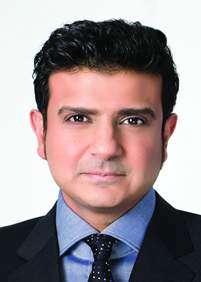
Technology changes the way rheumatologists and their patients work, live, and view the world. So it’s no surprise that a new TechMed sub-track is being introduced at this year’s Annual Meeting.
“Rheumatology has always been heavily invested in technology tools,” said Swamy Venuturupalli, MD, former Clinical Chief of Rheumatology at Cedars-Sinai Medical Center and Associate Clinical Professor of Medicine at the University of California, Los Angeles. “Our use of technology is growing exponentially, and our patients’ involvement with technology is growing at least as quickly.”
Technology is transforming the way rheumatologists and patients learn about medicine, not just practice it. The Opening Lecture on the afternoon of Saturday, Nov. 7, Education at Scale: Beyond an Experiment, also part of the Business/Administration track, will set the tone for the entire meeting.
“Education is no longer sitting in a classroom with other medical students or other rheumatologists,” said Dr. Venuturupalli, who is also a member of the Annual Meeting Planning Committee that helped plan the TechMed sub-track. “Almost every major medical school and university has been putting course material online, available to anyone. For example, I could get master’s level statistics courses from Johns Hopkins on demand, without ever leaving Los Angeles. I’m intrigued by what I’m going to hear and learn.”
“Additionally, our patients are getting the same access to the information that doctors have. Patients coming in with information, and misinformation, that they have Googled is just the beginning. We are going to be dealing with a very highly educated population that is hungry for technology to give them education and solutions.”
It is far from clear how the easy availability of medical information will change rheumatology practice.
“I could imagine a situation where someone has a potential diagnosis, starts reading online, and focuses on the worst-case scenario when they really shouldn’t,” Dr. Venuturupalli said. “On the other hand, if patients are able to learn some way of filtering all of this information, it could bring a very powerful and a very strategic transformation in health care. We don’t know how this will work out, but we are already seeing elements of both.”
A second major transformation is the application of big data to rheumatology. Atul Butte, MD, PhD, Professor of Pediatrics and Director of the Institute of Computational Health Sciences at the University of California, San Francisco, will focus on how massive amounts of data will — and already are — transforming the research and treatment of auto-inflammatory diseases.
“Big data” is a catchall term for the massive amounts of data becoming available from linking and mining electronic health records and other sources, including patients.
Dr. Venuturupalli will moderate a session on Wearable Biosensors to Advance Rheumatology on the morning of Monday, Nov. 9.
“Patients are already starting to wear off-the-shelf biosensors, and the possibilities are enormous and this technology is improving by leaps and bounds,” he said. “As one example, patients in a study at my institution, Cedars-Sinai, with rheumatoid arthritis were given biosensors for the first four weeks after starting a biologic. The sensors measured multiple parameters that we have never had before. Instead of simply counting steps, researchers had data on how quickly they moved and how the pace of movement changed, which give us some very interesting insights. Future clinical trials and clinical practice could well include biosensor data.”
Other key TechMed sessions will examine the clinical prospects for altering the gut microbiome to improve rheumatologic outcomes, the clinical impact of the RISE Registry, technology tools for rheumatologists, and new techniques to communicate health information in public forums such as social media and online articles, telehealth, and Twitter.
“Technology is transforming the way we learn and practice medicine and communicate information,” Dr. Venuturupalli said. “There is no better time to leap into TechMed than in San Francisco, the global hub for both technology and health care.”


